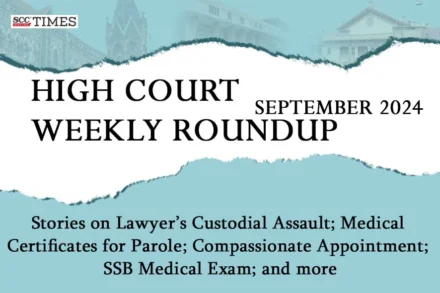
HIGH COURT SEPTEMBER 2024 WEEKLY ROUNDUP| Stories on Lawyer’s Custodial Assault; Medical Certificates for Parole; Compassionate Appointment; SSB Medical Exam; and more
A quick legal roundup to cover important stories from all High Courts this week.

A quick legal roundup to cover important stories from all High Courts this week.

Although the offence of ‘aggravated sexual assault’ was not mentioned in the compensation scheme, the Court referred to the offence of ‘unnatural sexual assault’ to determine the quantum of compensation.
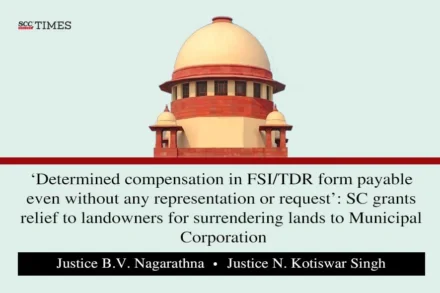
“A duty is cast on the State to pay compensation to the land losers as otherwise there would be a breach of Article 300-A of the Constitution.”
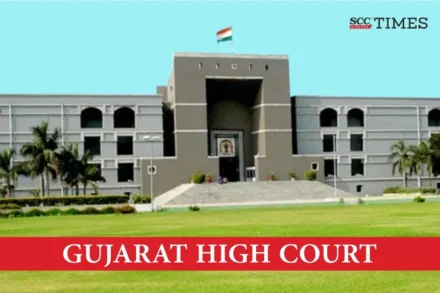
“The list of beneficiaries must include those victims who were already widow and have lost lone earning member of their family. The physically disabled victims shall be accommodated in a well-paid job.”

‘If the State fails to adhere to the practical necessity of preserving human life, it leads to a tragic loss of human dignity.’
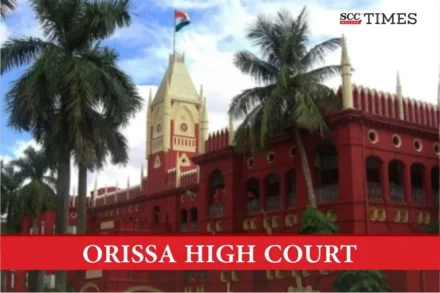
“The Oil/LPG companies in cases like this where human cost of LPG cylinder explosion is incalculable, behave like a hardcore litigant ignoring the fact that the matter does not fall in the realm of adversarial litigation. One can imagine as to how the thick flames engulfs the surroundings and human beings just reduce to ashes or sometime escape death and end up with deformities.”
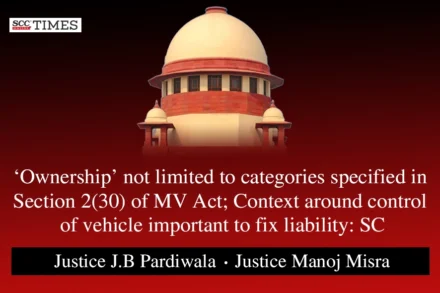
The issue in the instant case revolved around whether a dealer or the manufacturer can be construed as an ‘owner’ vis-a-vis fixation of tortious liability for payment of compensation, especially when the driver and deceased both were employees of the manufacturer.
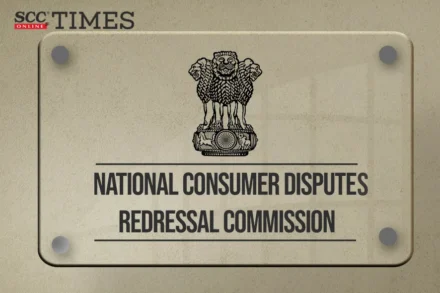
“SCDRC was not justified in saying that a person is entitled to more compensation, depending upon the fact of the case than the compensation as provided under the Railway Accident and Untoward Incidents (Compensation) Rules, 1990”.

The Court calculated the disability incurred by the claimant after the accident so as to determine a just and reasonable compensation.
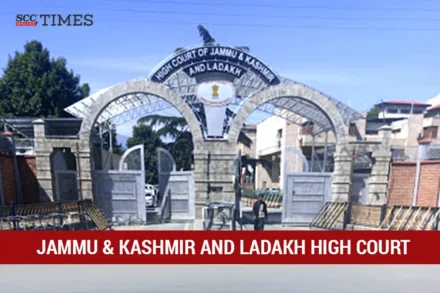
The Court noted that the electric shock resulted in the petitioner having a 75% disability from orthopedic side and 15% deformity disability.
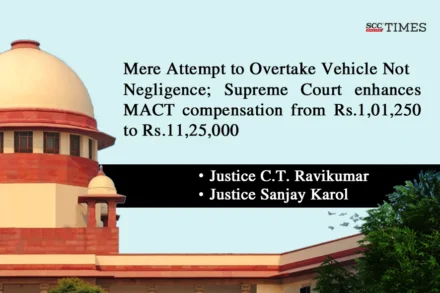
Regarding appellant’s attempt to overtake a vehicle, the Court stated that he was doing an act which is an everyday occurrence on the road, but resultantly suffered extensive injuries himself. Furthermore, it was proved that the offending vehicle was being driven rashly and negligently.
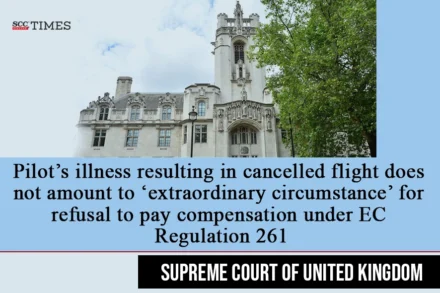
The Court stated that EC Regulation 261 provides a standardised level of compensation for passengers which does not require complex analysis. Requiring an enquiry into why, when and how a staff member became ill would be contrary to the intended operation of the scheme.
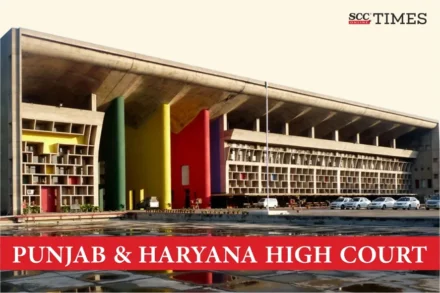
Petitioner was a young girl of 27 years, when the impugned letter was passed and she could not do anything for the next four years because of the aforesaid letter, which was passed without the authority of law. It has seriously affected her career and studies apart from other incidental consequences.

“The action of the Lucknow University in not only in violation of principle of nature justice but has deleterious effect on the future of the candidate and such an action is deplorable.”

The Court observed that MCD is a big Government Department, and this civic agency must be handling innumerable matters but that does not give any automatic handle to MCD to file written statement as per its own whims and fancies.
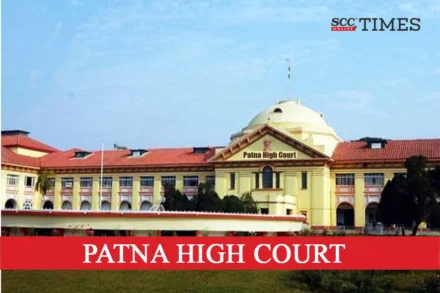
The Court observed that the parents of the victims were illiterate and that the appellant’s allegations of false implications and extortion on the victim’s family’s part did not inspire any confidence as per evidence on record.
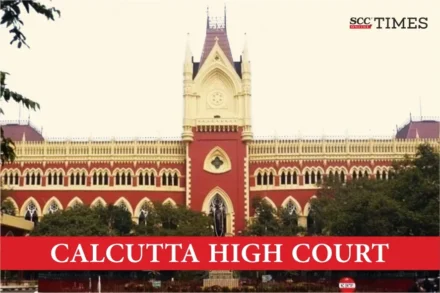
This is an unfortunate malaise that festers in hierarchies of Public Sector Bank and other bodies which has and continues to severely impact the man resources and impede the growth and wellbeing of an organization and its employees. Any special request from an employee out of the ordinary, even if supported by the Bank’s rules, is looked at with contempt and discomfort.
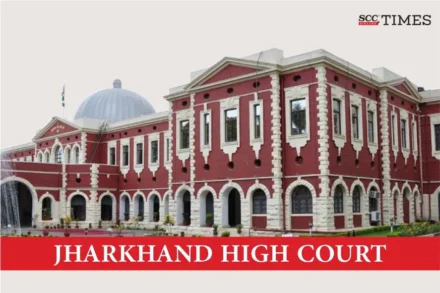
The Court stated that even though the right to property is no longer a fundamental right and was never a natural right, it must be accepted that without the right to property, other rights become illusory.

Setting aside the decision of the Railway Claims Tribunal and awarding compensation to legal representatives of the deceased the Court stated that a rash and negligent act cannot be equated with a criminal act resulting in self-inflicted injury and held that the injury sustained by the deceased was an ‘untoward incident’ as under Section 123(c)(2) of the 1989 Act.

The Court stated that the appellants were entitled to the compensation on the count of ‘loss of consortium’, ‘loss of dependency’, ‘loss of estate’ and ‘funeral expenses’.